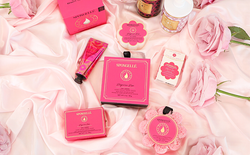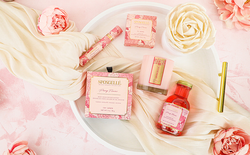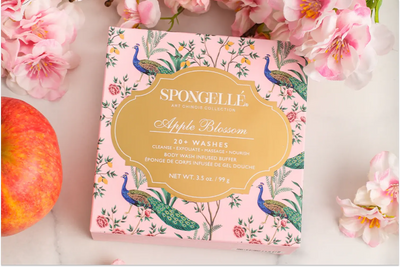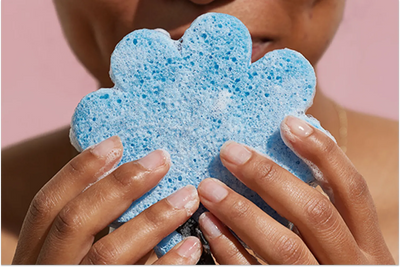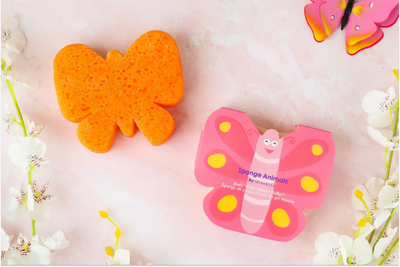People have mixed feelings when it comes to showering. Some people love to stand in a steamy hot shower for an hour every day. Meanwhile, others want to get in and out as fast as possible.
If you've ever wondered about how long a shower should actually be, we have your answer. There are certain health and safety concerns you should keep in mind before lathering up. The key is to keep your hygiene on point while not damaging your skin.
We are going to go over everything you need to know when it comes to showering. You'll find out how much time you should be spending, the right water temperature, and a step-by-step guide to getting the job done.
How Much Time Should You Take To Shower?
Sometimes, nothing feels better than washing off the day with a nice long shower. You may like to play music or even listen to a podcast while you get squeaky clean. The next thing you know, it's been an eternity, and you're still in the shower.
Maybe you're the opposite, and you despise showering, and you barely let your whole body get wet before you're ready to get out. However, have you even thoroughly cleaned your body? There is an ideal amount of time to spend in the shower.
The average shower lasts about eight minutes. If you're spending more than 15 minutes in the shower, you may need to make an adjustment. Dermatologists recommend keeping your showers between 5 and 10 minutes. This time period gives you enough time to properly clean your body without overdoing it.
If you have certain skin conditions, staying in the shower too long could have negative effects. Hot water can cause inflammation and worsen dry skin or eczema. These skin conditions can become more of a problem in the winter months, and adding extra stress to your skin with long showers should be avoided.
Plus, if you cut back on your shower time, you can save water and energy. With more than 300 million people in the United States, there is a lot of wasted water every year from showering alone. If everyone cut their shower time back by one minute, 170 billion gallons of water would be saved in a single year.
The Ideal Shower Temperature
Some people love a scolding hot shower year-round. If this is you, you may want to consider the health of your skin. A hot shower can feel great, but it can also strip your skin of its natural oils.
These oils protect your skin and keep it moisturized. When you wash them off, you could end up with itchy, dry skin. This outermost layer of skin also keeps bacteria out. Coldwater doesn't affect this layer, but hot water can melt it away.
If you are young, your skin will replace this protective later relatively quickly. People in their 20's and younger will probably be fine with a hot shower every day. However, someone in their 40's may experience dry patches if the water is too hot.
A high temperature becomes more of a concern the older you get. Your skin gets thinner when you get older, and it becomes harder for your body to regulate its temperature. If you get too hot, you could feel faint and even pass out in the shower, which is dangerous.
Most at-home water heaters can get as hot as 140 degrees Fahrenheit, but it's recommended to restrict it to 120 degrees to avoid injury. The ideal water temperature for your shower is 112 degrees. This temperature allows you to wash away dirt and germs without being too hot. You want it to feel warm but not uncomfortable.
You can also do a cold rinse for shinier hair and to close your pores. Coldwater is considered to be around 70 degrees Fahrenheit by dermatologists. Although, some may say to go even colder.
Soap and Skin Health
Over-cleansing your skin can have the same damaging effects as a hot shower. The amount and type of soap you use when showering can impact your skin's health. You can strip your skin of those natural oils that keep it looking fresh and youthful.
Some soaps and body washes are made with harsh chemicals that do more harm than good. Instead, try a soap with vitamins your skin needs, like Spongellé's brand new Beach Grass Body Wash. This luxurious, creamy shower gel is formulated with amino acids, glycerin, and pro-vitamin B5 to soothe and nurture your skin's natural barrier. It will leave your skin moisturized and nourished and not dry and dull.
If you struggle with keeping your skin hydrated even when using soap with good ingredients, you can limit where you use soap to your face, underarms, groin, hands, and feet. People with eczema can experience flare-ups on their back, arms, and legs. It may help to reduce the amount of soap these areas get to limit the amount of dryness.
You don't want to ignore signs your skin is irritated or inflamed because of potential side effects. If you're over-washing, you may experience:
- Rashes: When you damage the skin's natural barrier, you may be more susceptible to developing rashes.
- Adult Acne: When your skin is stripped of its natural oils, it may trigger your body's oil glands to go into overdrive. When your body produces too much oil, it can clog your pores and lead to acne.
- Seborrheic Dermatitis: This skin disease can manifest as a rash looking red and swollen. However, this condition can persist for years, coming and going. Since it can be confused with psoriasis, eczema, or an allergic reaction, you will need to see a dermatologist. A professional can properly diagnose it and help you treat it.
What Happens if You Don’t Shower?
Maybe you fall on the opposite side of the spectrum, and you're not showering on a regular basis. If you just wash your hands and face and think you can go days without a shower, not so fast. Poor hygiene comes with its own set of problems.
You can end up with a buildup of dirt, dead skin cells, and sweat on your skin. When you leave this stuff on your skin, you can develop acne. You can also end up with the same conditions people do from over-showering, like psoriasis, dermatitis, and eczema. You can also end up with hyperpigmentation from the dead skin cells left on your body.
Not showering can lead to an imbalance of the good and bad bacteria that live on your skin. When there are too many bad bacteria, your skin is at a higher risk of infection. If the infection is left untreated, it can have a severe impact on your overall health.
These side-effects are all how it impacts your health, but you may also want to consider the people around you. Your friends, co-workers, and family may be subjected to your body odor. No one wants the stinky person people try to avoid.
You can keep all of these negative side effects at bay with frequent showers. So how often do you need to shower? A general rule of thumb is once a day. However, if you work out in the middle of the day, you may want to implement a quick second shower.
How To Shower
Now that you know the in's and out's of how and when to shower, it's time to apply it to your life. Let's go over the actual steps to getting the job done.
Step 1: Turn on your shower and adjust it to the ideal temperature. You want it to be comfortable but not steaming hot. Slightly warm is what you should aim for when testing the water.
Step 2: Get in the shower and allow the water to wet your body fully.
Step 3: Grab what you're going to use to wash your body. You want to use something that's clean and doesn't hold harmful bacteria, like an old loofah can. Instead, try one of Spongellé's sponges. They can cleanse, exfoliate, and massage your body with none of the germs. The self-preserving formulation and patented technology prevents bacterial growth and resist contamination.
Step 4: Apply a premium quality body wash or soap and begin to scrub your body. Don't forget to wash your feet. Standing in soapy water doesn't count.
Step 5: Rinse off your body thoroughly and not to leave any soap behind.
Step 6: If you're washing your hair, apply shampoo focusing on your scalp. Once you rinse it out, apply conditioner, working it into the ends of your hair.
Step 7: If you're going to do a cold rinse, now is the time to change the temperature. Rinse out the conditioner and rinse your body one final time. You don't want conditioner sitting on your skin.
In Summary
There is a middle ground you have to find when showering. You don't want it to be too hot or use too much soap. You also shouldn't avoid it altogether. Spongellé products can help you look forward to showering and maintaining healthy skin.
Sources:
Save Water and Energy by Showering Better | CDC
Burning Question: What Is the Best Water Temperature for Your Bath or Shower? | Wallstreet Journal
Wondering How Often You Should Shower? We've Got Answers for You | Healthline
Shower Time: How Long to Take and Are Longer Showers Better? | Healthline


